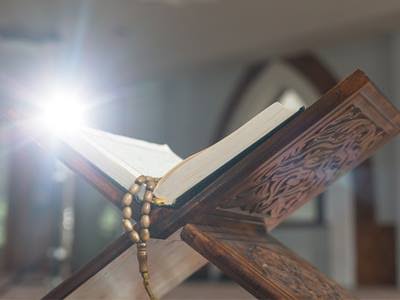It is going to be a very different Ramadan this year due to the Covid-19 global pandemic and the social isolation laws. For 1.8 billion Muslims around the world, the cultural traditions and customs of this religious month of fasting will have to be forsaken for the safety of the global community.
Ramadan in 2020 means no communal gatherings in mosques for “tarawih” night prayers, no large “iftar” dinners with family and friends, and, sadly, restrictions on celebrating Eid, the biggest social holiday for Muslims signalling the end of Ramadan.
Though cultural traditions have depicted Ramadan as a month of “feasting” and socialisation, in reality, the pure religious tenets stress Ramadan as a month of extreme self-discipline and self-mastery.
The current coronavirus rules involve hygiene practices that muslims are encouraged to do in general daily life. Muslims believe that cleanliness is half of faith, and we perform “wudu”, which is a ritual purification that involves handwashing and washing the face, arms and feet five times a day before each obligatory prayer.
Self-discipline when it comes to physical acts of worship is a part of the heritage of Islam. However, the true essence of Ramadan has been diluted, and dare I say, lost, through the generations. The struggle for us today lies in the matters of the heart and the soul, and connecting at a deeper, more authentic level, to our sense of self and to our creator.
Unfortunately, today Muslims often subjugate themselves and put the needs of others over our own physical, mental and spiritual needs. We frantically prepare large family dinners, and with the lockdown and children at home every day, this struggle can be magnified. It could simply be a matter of perspective, where a shift into a spiritual reflective state – a state of being rather than doing – could help maximise our affinity.
The focus of Ramadan can move away from food preparation and “eating at sunset”, to self-improvement and self-discipline. There can be a tendency to overeat at these large iftars due to the spread of food available. However, now, without the self-induced obligation of hosting or attending iftars, meals can be prepared with a focus on simplicity and aligned with Islamic principles.
In this time of physical distancing, as Muslims we will be forced to reconnect to our God and the Qur’an on a deeply intimate level. Interestingly enough, this is the authentic practice of Prophet Muhammad, SallAllahu Alayhi Wa Sallam. He would isolate himself for days in a cave at the top of a mountain to introspect, reflect, worship and connect with Allah. During the last 10 days of Ramadan, he was known to self-isolate in a spiritual seclusion practice known as “itikāf”.
The authentic spirit of Ramadan is one of self-discipline, introspection, self-discovery and self-development. Ramadan during the global pandemic may seem disheartening at a superficial level, however I honestly feel that it arrives at an ideal time.
You have the choice to embrace this Ramadan with a focus on deep connection and one-on-one intimacy with God through prayer and reflection. Let us plan to spend this next month practising self-compassion and self-mastery, and take this journey of holistic growth and connection.

